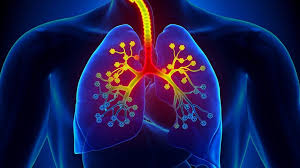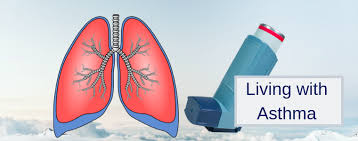
Understanding Asthma: A Comprehensive Guide
Asthma, a chronic respiratory condition affecting millions worldwide, often goes beyond a mere difficulty in breathing. It’s a condition that can profoundly impact one’s quality of life, influencing everything from daily activities to long-term health management. Let’s delve into what asthma is, its causes, symptoms, and most importantly, how individuals can effectively manage this condition.

What is Asthma?
Asthma is a chronic disease characterized by inflammation and narrowing of the airways, which leads to recurrent episodes of wheezing, breathlessness, chest tightness, and coughing. These symptoms can range from mild to severe, with some cases requiring urgent medical attention.
Causes and Triggers
The exact cause of asthma is not fully understood, but it is believed to result from a combination of genetic and environmental factors. Common triggers include:
- Allergens: Pollen, dust mites, pet dander.
- Respiratory Infections: Cold, flu, sinus infections.
- Irritants: Tobacco smoke, air pollution, strong odors.
- Physical Activity: Exercise-induced asthma.
- Weather Changes: Cold air, humidity.
- Emotional Factors: Stress and anxiety can exacerbate symptoms.
Understanding one’s specific triggers is crucial in managing asthma effectively.

Symptoms
The symptoms of asthma can vary widely among individuals and may change over time. They commonly include:
- Wheezing: A whistling sound when breathing.
- Shortness of Breath: Difficulty breathing, especially during physical exertion or at night.
- Chest Tightness: A feeling of pressure or squeezing in the chest.
- Coughing: Particularly at night or early in the morning.
Symptoms can worsen gradually or suddenly, known as asthma attacks, which require prompt treatment to prevent complications.

Diagnosis
Diagnosing asthma involves a combination of medical history, physical examination, and lung function tests such as spirometry. Doctors may also consider allergy testing to identify specific triggers.
Treatment and Management
While asthma has no cure, it can be effectively managed with the right treatment plan:
- Medications: Inhalers (bronchodilators and anti-inflammatory drugs) are the mainstay of treatment, providing quick relief during attacks and long-term control to prevent symptoms.
- Allergy Management: Identifying and avoiding triggers can significantly reduce the frequency and severity of asthma attacks.
- Lifestyle Changes: Quitting smoking, maintaining a healthy weight, and regular exercise (with proper warm-up) can help manage symptoms.
- Monitoring: Keeping track of symptoms and peak flow measurements can help individuals and their healthcare providers adjust treatment plans as needed.

Living with Asthma
Living with asthma requires diligence and awareness. Education is key—understanding one’s triggers, knowing how to use inhalers correctly, and recognizing early signs of an impending attack are crucial for effective management. It’s also essential to have a support system that includes healthcare professionals, family, and friends who understand the condition and can provide assistance during emergencies.

Conclusion
Asthma is a complex condition that demands respect and proactive management. With proper treatment and lifestyle adjustments, individuals with asthma can lead full, active lives. The key lies in education, adherence to treatment plans, and a proactive approach to identifying and managing triggers. By working closely with healthcare providers and staying informed, those with asthma can effectively control their symptoms and minimize the impact of this chronic disease on their daily lives.



Leave a Reply